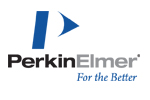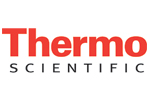Other Track AgendasAdvances in Biodetection & Biosensors | Advances in Microarray Technology | Advances in Protein Crystallography | Advances in Separation Technology | AgriGenomics Congress | Lab-on-a-Chip European Congress | Next-Gen Sequencing Europe | Screening Europe - HCS and Assays | Screening Europe - HTS & Compound Management | World Biobanking Summit |

Thursday, 30 June 2011 |
Session: Label Free Assays |
| | 09:00 | Target Profiling of Cancer Cell Lines by Label-free Screening of Peptide and Small Molecule Libraries
Carsten Grotzinger, Group Leader/Head, Charite University Medicine Berlin, Germany
Functional screening tumor cell lines may provide valuable knowledge about biological relevance of GPCRs and other receptors in human cancer. We evaluated the utility of label-free cell-based assays in screening peptide and small-molecule libraries on cancer cell lines. | 09:30 | Cosmetic Ingredients Tantalising TRPs - Validation of Novel TRP Modulators by Impedance-based Label-free Technology
Dirk Sombroek, Scientist, BRAIN Biotechnology Research And Information Network, Germany
TRPs respond to a variety of diverse stimuli and their activation impacts on cellular physiology. Label-free impedance technology was applied to validate novel TRP modulators with high potential for cosmetic applications. | 10:00 | Innovative Label-Free Technology Solutions Improving Efficiency in Drug Discovery
Fredrick Sundberg, Director of Global Pharma Market Development, GE Healthcare, United States of America
Enabling technology solutions can impact both compound quality and overall productivity by providing more information on protein interactions. The use of innovative label-free assays can rapidly eliminate false-positive hits in screening, improve lead optimization and protein stability. | 10:30 | Coffee Break and Networking in Main Exhibition Hall | |
Session: Fragment Based Discovery |
| | 11:15 | Fluorescence Lifetime Assays - An Attractive Addition to the Toolbox of Fragment Screening Technologies
Doris Hafenbradl, Senior Director, Biofocus, Switzerland
In this presentation we will describe novel FLT assays developed at BioFocus. | 11:45 | Fragment-informed Lead Generation to Accelerate the Hit Identification for PDE10A Inhibitors: The Synergistic Combination of a Novel Fragment Screening Approach with HTS
Stefan Geschwindner, Principal Scientist, AstraZeneca R&D Molndal, Sweden
Using an innovative and efficient fragment-screening strategy in synergistic combination with an traditional HTS approach can achieve a significant accelaration of hit identification. | 12:15 | Lunch and Networking in Main Exhibition Hall | 12:45 |  Free Workshop Free Workshop
Advancement of Separation, Purification and Crystallography from Agilent Technologies
,
| 13:15 | Poster Presentations | 13:30 |  Free Workshop Free Workshop
High Content Screening for Compounds and Genes Affecting Bacterial and Viral Infections
,
| |
Session: Automation in Screening |
| | 14:15 |  | Keynote Presentation Automated State-of-the-Art Compound Profiling for Protease Drug Targets
Samu Melkko, Investigator, Novartis, United Kingdom
Proteases are an important class of targets for drug discovery, with several protease inhibitors in the clinic for various indications. Similar to the well-established processes used in high-throughput screening (HTS), an automated compound profiling process for proteases has been introduced enabling high quality data and short turnaround times. Optimized workflows and a modular set-up of the processes provide the flexibility needed to support the unique needs of target-class oriented drug discovery programs with tailored solutions. |
| 14:45 | More than Miniaturization: How Robust, Automated Nanoliter Liquid Handling has Altered Screening Workflows
Richard Ellson, Chief Technology Officer, Labcyte Inc, United States of America
Robust, automated nanoliter liquid handling based on acoustic dispensing was used in compound management and high-throughput screening (HTS) for many years with the initial goal of miniaturizing an existing process or assay. In many cases, this went beyond miniaturization to create new workflows and screening methods. A survey of these methods will be presented. | 15:15 | Coffee Break and Networking in Main Exhibition Hall | 16:00 | Ultra Low Volume Liquid Handling: Picoliter and Nanoliter Applications in Biosensors, Microarrays, Lab-On-A-Chip and HCS
Holger Eickhoff, Chief Executive Officer, Scienion AG, Germany
Saving precious samples and reagents are key to minimize costs in pharmaceutical screening and the development of new diagnostic tests. Handling small amounts of liquids with tiny dead volumes is a key part to achieve this. | 16:30 | Right Compound - Right Amount - Right Place - Right Time. Moving to a Sound Compound Management Process
Toby Winchester, Application Consultant, Titian Software, United Kingdom
This talk will include the processes involved in getting towards this steady state and the future steps needed to end the journey. The talk will include work on QC, investment in accurate liquid handling platforms such as acoustic systems (equipment and resource) and the essential IT integrations. The lessons learnt in this evolution and how to handle a file as large as Pfizer's. The talk will also involve Lean Six Sigma processes that got us close to this vision. | 17:00 | Mass Spectrometry Based Detection Methods for High Throughput Applications
Kerstin Thurow, Chief Executive Officer, Center for Life Science Automation, Germany
Current and future developments in faster, multidimensional runs and fully automated and computerized control for sample setup through data interpretation will be presented with examples including measurement, data analysis and automation. | 17:30 | Mass Spectrometry Based Detection Methods for High Throughput Applications
Brian Everatt, Research Investigator, Novartis, United Kingdom
This presentation outlines the concept, design and installation of the new automated system within Global Discovery Chemistry at Novartis in Horsham. It demonstrates how the working patterns of medicinal chemists are being influenced, and highlights potential future applications and developments. | 18:00 | Drinks Reception |
Friday, 1 July 201108:00 |  Free Workshop Free Workshop
PCR without DNA purification – Thermo Scientific Direct PCR
,
| 09:00 | Thermo Scientific Versette - New Generation of a Modular Automated Liquid Platform
Susanne Reichenberger, Product Specialist, Thermo Scientific, United States of America
The open access technology platform for HTS at the Leibniz-Institut für Molekulare Pharmakologie is located on the Campus of the Max-Delbrück-Center in Berlin. The Unit already served more then 100 projects for identification of compounds modulating biological functions with state of the art automation and detection technologies. | 09:30 | Automation for High Content Screening and Genome-Wide RNA-Interference (Screening Unit, FMP)
Jens Peter von Kries, Head of Screening, FMP/Leibniz Institute for Molecular Pharmacology, Germany
The open access technology platform for HTS at the Leibniz-Institut für Molekulare Pharmakologie is located on the Campus of the Max-Delbrück-Center in Berlin. The Unit already served more then 100 projects for identification of compounds modulating biological functions with state of the art automation and detection technologies. | |
Session: Chemical Probes |
| | 10:30 | Coffee Break and Networking in Main Exhibition Hall | 11:15 | Improving Efficiency in High Throughput Screening Operations with High-speed Identification of Problem Samples
David Harding, Head of Sales, Brooks Life Science Systems , United Kingdom
How intelligent vision technology is being used by CM and HTS groups to perform accurate non-contact volume measurement and precipitate detection in SBS format microtubes, to rapidly identify potentially problematic samples in library collections, and thereby minimise results variability, and reduce waste. | 11:45 | High Throughput Flow Cytometry for Small Molecule Discovery in the NIH Molecular Libraries Initiative and Beyond
Larry Sklar, Director, University of New Mexico Health Sciences Center, United States of America
The University of New Mexico Center for Molecule Discovery (U54MH084690, http://screening.health.unm.edu/) identifies and implements novel applications of the HyperCyt flow cytometry platform for high throughput small molecule discovery. Flow cytometry is recognized for its unique ability to analyze complex and multiplexed target populations in cell and molecular screening where multi-parameter analysis is beneficial. | 12:15 |  Technology Spotlight: Technology Spotlight:
The ThermoScientific OrbitorTM RS –Automation Examples for Routine Assays
Alexander Frittrang, Key Account Manager, Thermo Scientific
| 12:30 | Lunch and Networking in Main Exhibition Hall | 12:45 |  Free Workshop Free Workshop
Glosensor Technology: Intracellular Biosensors to Detect Signal Transduction in Living Cells
,
| 13:15 | Poster Presentations | 13:30 |  Free Workshop Free Workshop
Automatic High Content Screening for Life Sciences
,
| 14:15 | A Combined Biochemical and Cellular Profiling Approach to Better Understand the Mechanism of Anti-Tumor Drugs
Martin Augustin, Technology Manager, Merck Millipore, Germany
In this presentation we will be discussing signaling pathway analysis in conjunction with relevant cell based systems which enable researchers to identify how signaling nodes, signal redundancy and feedback loops may affect the desired activity of a compound inhibitor, providing complementary data to target-specific biochemical assays. | 14:45 | Can Machine Intelligence Help? Classification and Regression Models for High Content Screening
Peter Horvath, Finnish Distinguished Professor, Fellow FIMM Helsinki and Group Leader, Hungarian Academia of Sciences, Switzerland
The audience will learn pros and contras of classical machine learning techniques and see how new methods can help in HCS analysis. An open-source tool will be proposed offering all the methods presented during the talk. | 15:15 | Coffee and Networking in Main Exhibition Hall | 16:00 | A Bioluminogenic HDAC Activity Assay - Validation and Screening
Sheraz Gul, Vice President & Head, European Screening Port GmbH, Germany
We have validated novel bioluminogenic assays for HDAC enzymes. These were subsequently utilized in High Throughput Screens that yielded Z' >0.6 with with acceptable performance in Confirmation and Counter Assays. | 16:30 | Close of Conference |
|

 Add to Calendar ▼2011-06-30 00:00:002011-07-01 00:00:00Europe/LondonScreening Europe - HTS and Compound ManagementSELECTBIOenquiries@selectbiosciences.com
Add to Calendar ▼2011-06-30 00:00:002011-07-01 00:00:00Europe/LondonScreening Europe - HTS and Compound ManagementSELECTBIOenquiries@selectbiosciences.com